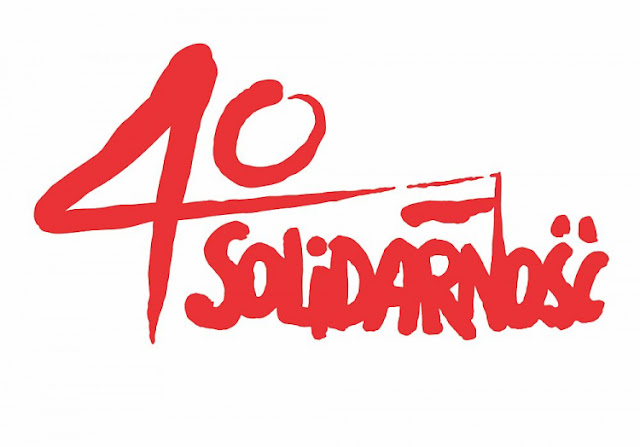Remembering Solidarność on its 40th birthday
40 years ago, on 31st August 1980, Solidarność (English: Solidarity) was formed in Poland. Following the now world-famous protests at the Gdansk shipyard, localised protest against workers' dismissals turned into a wider expression of grievance, and Soldiarity was birthed. Initially, its momentum seemed unstoppable. A self-governing trade union, Solidarity's membership reached an incredible 10million by the end of the year.
It is well known that Lech Wałęsa received the Nobel Peace Prize in 1983. It is easy to look back on the 1980s and see the route marched by Solidarity as inevitable, but to take such a view would be to seriously misunderstand the times and the political situations in which Wałęsa was forced to operate. Lest we forget, the years 1980-1989 were years of struggle and at times it seemed unlikely that Solidarity would survive, let alone succeed in its objectives. The government of Wojciech Jaruzelski only began talking to Solidarity once its multiple attempts to crush it had proved unsuccessful.
In 1989, the world was stunned as round table talks with the Communist government led to semi-free elections, with a Solidarity government being returned. The scale of Solidarity's victory was as stunning as the speed at which events unfolded. Many Poles take the view that their country only (finally) became independent in 1989 - it's a perspective I find difficult to argue with.
Solidarity ultimately succeeded for many reasons - support from the Catholic Church and the US certainly helped, as did Mikhail Gorbachev in forging a new relationship with COMECON nations in which Soviet interference would no longer be the dafault position. The determination of Solidarity's leaders, especially (but not only) Lech Wałęsa, was also key: the imposition of martial law in 1981, dishonestly declared to be on the basis of preventing a Soviet invasion, would have destroyed lesser opponents. Another factor in Solidarity's eventual success was that it was an authentically broad church with a participatory ethos. It was not, contrary to popular opinion, a revolutionary movement but a grassroots movement for workers' rights, basic liberties and democratic governance. For its time it was also a highly inclusive organisation, including everyone and standing against racism.
I am not attempting to write an intellectual appraisal of Solidarity's legacy and achievements: others have done that more effectively than I ever could. The longer-term effect of Solidarity's decade-long struggle is complex and difficult to assess, but what is certain is that without Soldiarity the transition from autocracy to democracy would have been more fraught. I am convinced that Communism would eventually have fallen - if only for economic reasons. But its collapse would not have been so sudden, and so devastatingly complete, without Solidarity. Not only did Lech Wałęsa and Solidarity bring about the movement to democracy in their own country, they opened the door for what would happen a few months later in East Germany, Czecholslovakia and Romania.
I feel, forty years on, that it is necessary to honestly remember the price of freedom and the roles so many people played within it - especially at a time when the legacy of Solidarity is being dishonestly appropriated. A few years ago the British National Party (BNP) set up its own Solidarity union, supposedly in honour of Wałęsa's union. Today the current Polish (PiS, Law and Justice Party) government is reinventing Solidarity's history for its own cynical motivations, and - worse still - what remains of the union is firmly allied with the PiS, supporting its anti-immigration, anti-LGBT, ultra-Conservative and nationalistic rhetoric. It's a far cry from Wałęsa's speech at the Gdansk shipyard. Sadly, the transformation of Solidarity into a puppet of the PiS has resulted in many abandoning the union and - tragically - rejecting its historic achievements.
Solidarity deserves to be remembered as a powerful vehicle for change in the 1980s, and for its role in ending the strangehold Communism had on what we generally call Eastern Europe. Solidarity was nothing short of heroic and influenced millions - not only in Poland but around the globe. it encouraged people to stand for freedom and resist despotism. Solidarity's journey since 1989 should never detract from the courage of those who stood against oppression and totalitarianism and who, in spite of having government tactics viciously deployed against them, not only survived but showed a willingness to sit down and engage purposely with those who attempted to crush them.
The story of Solidarity should also provide some hope for those of us who, four decades later, believe ourselves to be in politically impossible positions. There cannot be many more unlikely stories than the triumph of Solidarity, and the total collapse of the Communist empire it helped to bring about...

Comments